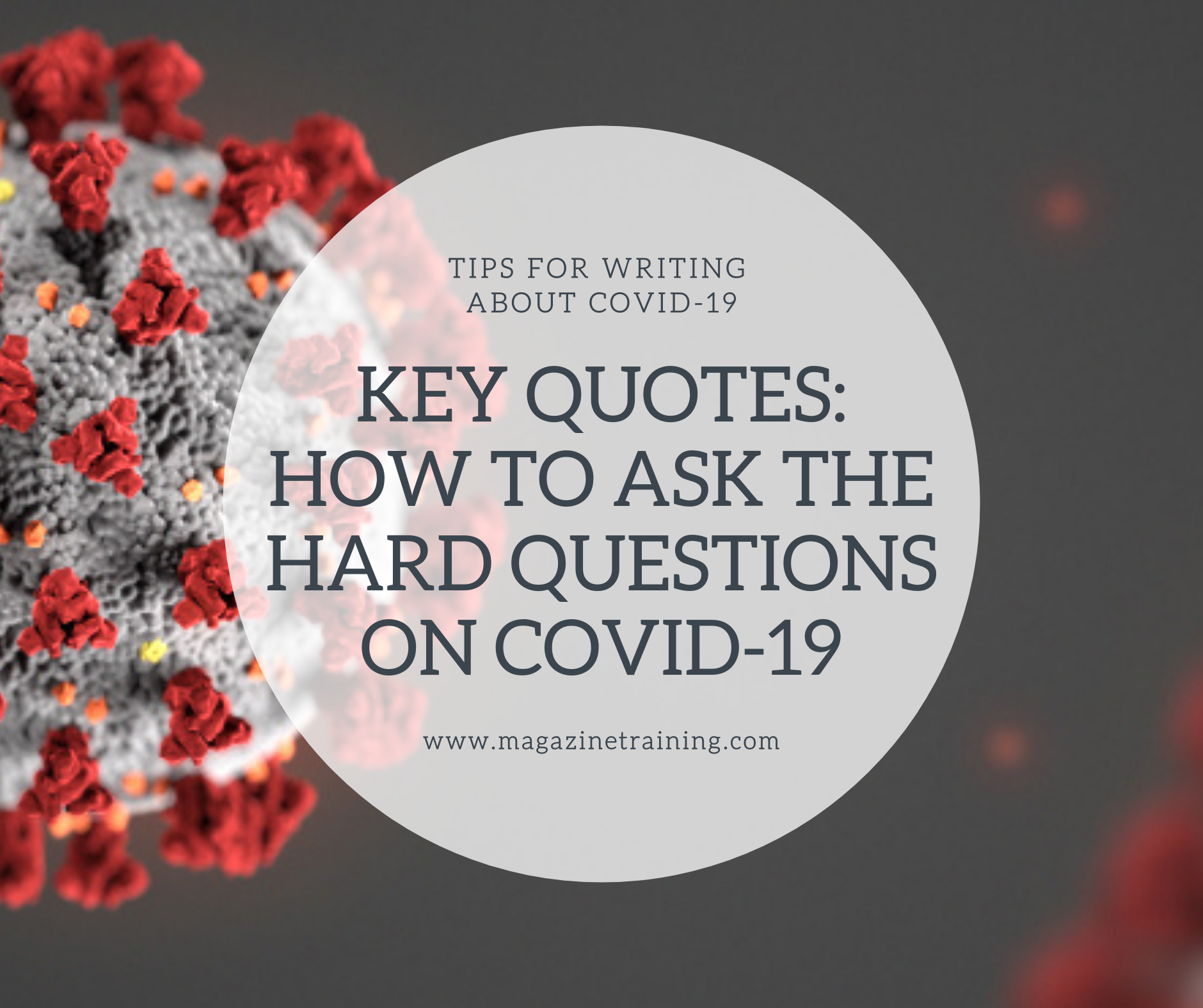
“Every interview—whether it’s with a victim of COVID-19 or the president of your country—is a fight for control,” said Julian Sher, a veteran TV documentary writer and director, during an ICFJ webinar Tuesday.
To keep interviews on track, he advised, reporters should set a strategy ahead of time, then be firm about sticking to it. “We do have an uncomfortable job. We sometimes have to push the limits, and I’m very comfortable with being human about it,” he said.
At the same time, reporters should keep in mind that no interview is perfect. “I’ve done thousands of interviews in the last 30 years, and inevitably most of them don’t work out the way I want them to,” he said. “The goal is not to do a perfect interview, the goal is to figure out how to do the best interview you can.”
He shared examples and tips on how to use interviews to get the answers the public needs and to hold the powerful to account.
Here are key quotes from the conversation:
On how to prepare for a tough interview
Once you have done your research, choose a strategy for your interview, Sher said. First, figure out whether this will be primarily an informational interview, an emotional interview, or an accountability interview. The best conversations with sources have elements of all three types, he said. Ask yourself how much of the interview should focus on each, and craft your questions accordingly.
When you speak with the source, start by asking questions to solicit information. he said. Next, ask questions related to emotion. At the end, wrap up with questions about accountability.
He shared examples of each type of question:
- Informational: When did you first learn about the COVID outbreak?
- Emotional: What did the deaths of the nurses you knew so well mean to you?
- Accountability: How guilty do you feel because you refused to supply masks and other protection?
On how to redirect an interview
- If you start to lose control to the source, be firm, Sher said. Shift the focus back to your questions, perhaps by using humor. If necessary, take an aggressive approach.
- If the source’s answer becomes so long that it risks eating time you need for other questions, “I think you should interrupt, but you can do it in a polite way,” he said.
- Don’t be afraid to keep repeating a same question, he said. “It sounds a little ridiculous, but if somebody is not answering the question, you keep asking it until they answer or until at least you prove to your audience that they are afraid to answer the question.”
On keeping questions simple
- “When a question mark comes out of your mouth and you are still talking, you have to figure out, ‘Why am I still talking?’ That was a question mark! Stop talking!”
On why not to let a source lure you into a debate
- “If you get into a debate, you will always lose because it’s an unfair fight. The person you are interviewing is allowed to lie, deflect, make things up. You can’t,” he said.
On how to respond when challenged
- When U.S. President Donald Trump response to CBS News’ Weijia Jiang’s question about U.S. COVID-19 testing was, “Ask China that question,” Jiang, who is Chinese American, did not back down. Instead, she asked him repeatedly why he had directed that advice to her specifically. “Don’t be afraid to stand up for yourself,” Sher said, sharing a clip of the exchange as part of the session. “She stands up, but she asks a journalistic question.”
- If leaders or politicians try to limit your questions or prevent you from getting information, he says,“Never break the law. Never put yourself at risk of going to jail or being harassed. But you do have to be courageous.”
On finding answers during a pandemic
- “It’s becoming increasingly clear that countries that have put science first, and have put the scientists in front of the national news conferences, versus governments…that have pushed politics over science, that’s having deadly consequences,” he said. If you’re covering these official, he said, ask them why.
For more tip sheets and guides, visit Sher’s website.
by Amanda Menas, International Journalists’ Network
Related posts
Category: Uncategorized
Malnutrition is a health crisis affecting millions around the world — and one becoming more urgent as the pandemic continues. Its impact is not just represented in [...]
Magazine Training International’s mission is to encourage, strengthen, and provide training and resources to Christian magazine publishers as they seek to build the church and reach their societies for Christ.

